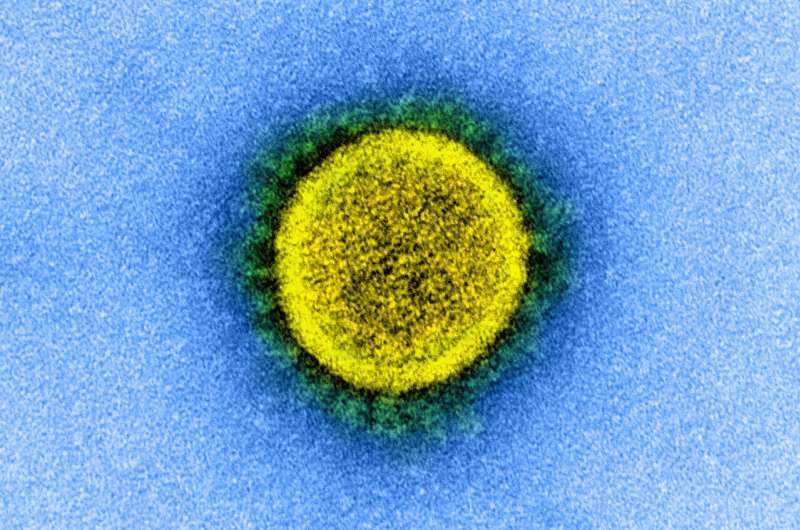
It is, scientists say, the most worrying COVID-19 variant since delta and perhaps ever. Here is what we know—and what we don’t—about the strain thought to have originated in Southern Africa.
How worrying?
“This one is worrying and I’ve not said that since delta,” British virologist Ravi Gupta said on Twitter, about the variant labelled B.1.1.529.
Concerns among disease experts stem from the variant’s genetic characteristics, as well as the observed impact it is having in communities across southern Africa.
B.1.1.529 possesses a number of unusual mutations, notably around 30 to its spike protein—the part that latches the virus on to human cells.
Based on the experience of previous variants, it is known that some mutations can lead to the virus becoming significantly more transmissible, and can even reduce the effectiveness of vaccines.
“Based on its genetics, it’s something very rare and could well be concerning,” Vincent Enouf, from Paris’s Institut Pasteur, told AFP.
Epidemiologically, the trends are also worrying scientists and governments: case levels in South Africa’s Gauteng—the region thought to be where the variant came from—are exploding.
The World Health Organization has stressed that it may yet take weeks to better understand the new variant and how much more transmissible, or dangerous, it is compared to previous strains.
“We need to remain calm, continue to monitor it and not completely alarm the public,” said Enouf.
US virologist Angela Rasmussen, summed up on Twitter the general mood among peers.
“Virologists—including myself—are concerned. But I don’t think anyone can conclude based on the data we have so far that we are screwed,” she said.
Worse than delta?
Perhaps the main question is one scientists are so far unable to answer with any certainty.
Delta is today the dominant coronavirus variant, spreading globally thanks to its characteristics that allow it to pass more easily between humans and evade some vaccine protections.
Even as newer variants—mu or lambda to name just two—have emerged, delta has retained its near-hegemony.
Early evidence from Gauteng does leave open the possibility that the new variant may be capable of dethroning delta, however.
“Initial observations suggest that B.1.1.529 was able to become established in Gauteng province and out-compete delta,” said Sharon Peacock, Professor of Public Health and Microbiology, at the University of Cambridge.
“There are several explanations for this. A large super-spreader event linked to B.1.1.529 would give the impression of out-competing delta (which is otherwise the ‘fittest’ variant we have seen to date). But the other explanation is that B.1.1.529 can actually out-compete delta.”
Peacock stressed that more research was needed to ascertain the true cause and extent of the new variant’s spread.
One positive could be the fact that the new variant is easily diagnosable by a regular PCR, which should enable governments to keep better tabs on case loads.
Is there anything we can do?
It took less than 24 hours between South Africa announcing the variant and European nations suspending flights from southern Africa.
But for Enouf, “this is probably too late”.
“It’s a measure that allows us to slow” the spread of a variant, “but would never allow us to stop it completely,” he said.
Some experts fear that the variant will lead to countries stigmatising South Africa and Botswana, where cases have also been documented. The worry is that this might dissuade other countries from divulging the existence of future variants.
But, as shown by cases detected on a Belgium-to-Israel flight, the new variant has already spread elsewhere.
Will vaccines work against it?
Again, it is too soon to know.
“We need to check if the antibodies produced by our current vaccines still work, and what level do they work and if they can still prevent serious cases,” said Enouf.
That requires a two-pronged approach of lab trials and looking at real-world data in affected countries.
German vaccine manufacturer BioNTech expects data from tests “in two weeks at the latest”.
One potential point of good news is that mRNA vaccines such as Pfizer-BioNTech and Moderna are likely adaptable against most variants.
“It is urgent to adapt RNA vaccines and vaccine boosts to the circulating variants,” virologist Etienne Decroly said on Twitter.
Of greater concern are populations in countries where very few people have received even a single vaccine dose.
Source: Read Full Article